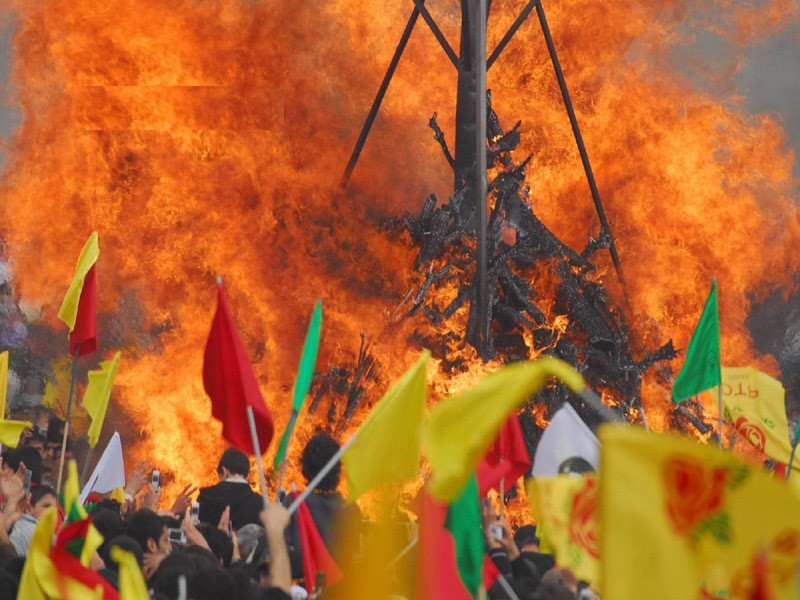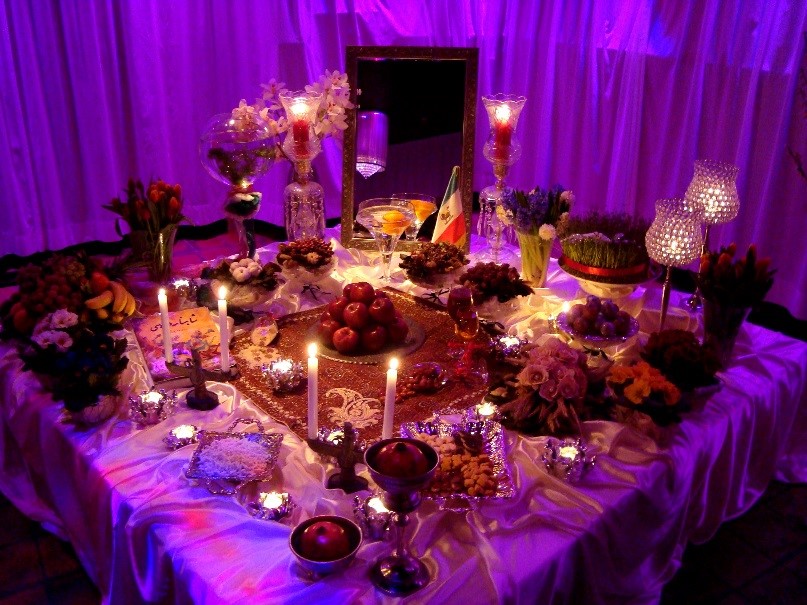Nowruz (Norooz)
Nowruz (Norooz)
The next 13 days are called Nowruz, also known as Iranian New Year!
Celebrated worldwide for over 3,000 years it marks the beginning of Farvardin (The first month of the Solar Hijri calendar, the official calendar of Iran and Afghanistan), indicating the beginning of spring.
The word Nowruz blends together the Persian words “now” which means “new,” and “roz” which means “day.”
Nowruz celebrates renewal and rebirth, symbolised by the coming of spring. Now, it is also an important Iranian cultural holiday that spans many religious traditions. It is seen as a holiday for most celebrants and is enjoyed by people of different faiths, however it still remains a holy day for Zoroastrians (The ancient, pre-Islamic religion of Persia).
On the last Wednesday of the old year, the night of Chahar Shanbe Suri is celebrated in order to symbolically get rid of all the misfortunes and bad luck of the past year. People light small bonfires and jump over flames, shouting “Zardie man az to, sorkhie to az man,” which means, “May my sickly pallor be yours and your red glow be mine.”
Other traditions include a ceremonial table display called the “cloth of seven dishes”. This table remains in the family home for thirteen days after the start of the holiday. A traditional dinner for Nowruz is Sabzi Polo Mahi, a rice dish with whitefish and green herbs like parsley, coriander and chives.
7 traditional foods each symbolise an important aspect for the New Year:
Symbolising renewal:
Sabzeh: lentil, barley or wheat sprouts growing in a dish
Symbolising affluence:
Samanu: a thick, sweet pudding made from wheat germ
Symbolising love:
Senjed: dried fruit of the lotus tree
Symbolising medicine:
Sir: garlic
Symbolising health and beauty:
Sib: apples
Symbolising sunrise:
Somaq: sumac berries
Symbolising age and patience:
Serkeh: vinegar


Left image shows a large feast that may be eaten around this period, right image shows people lighting a bonfire to get rid of any misfortunes and bad luck.
Vandu Language Services is based in Lewes, Sussex and has been helping organisations overcome the language barrier since 1999. We provide interpreting, translation, bilingual advocacy and cross cultural training for when you need to communicate clearly across cultures.
